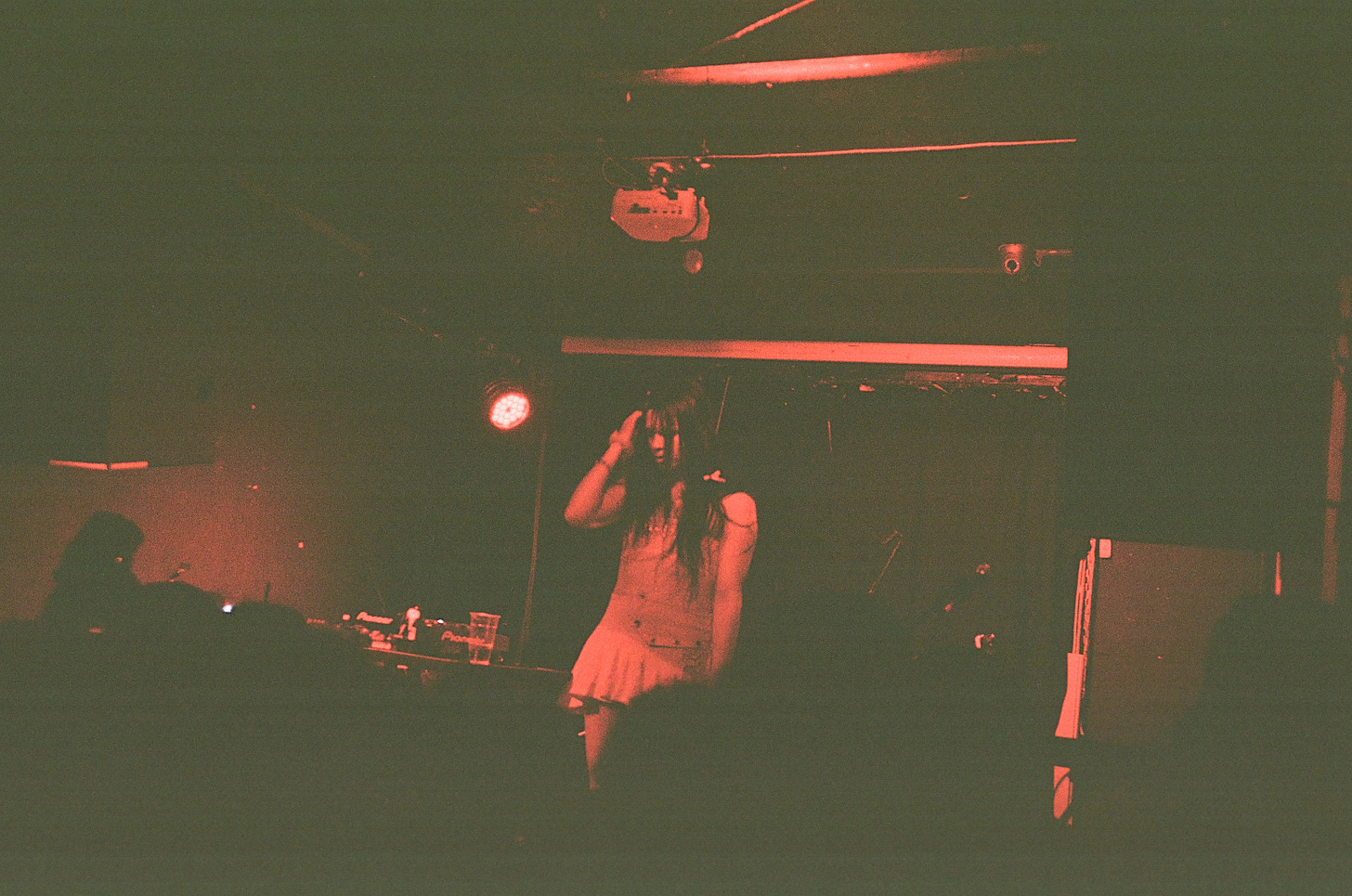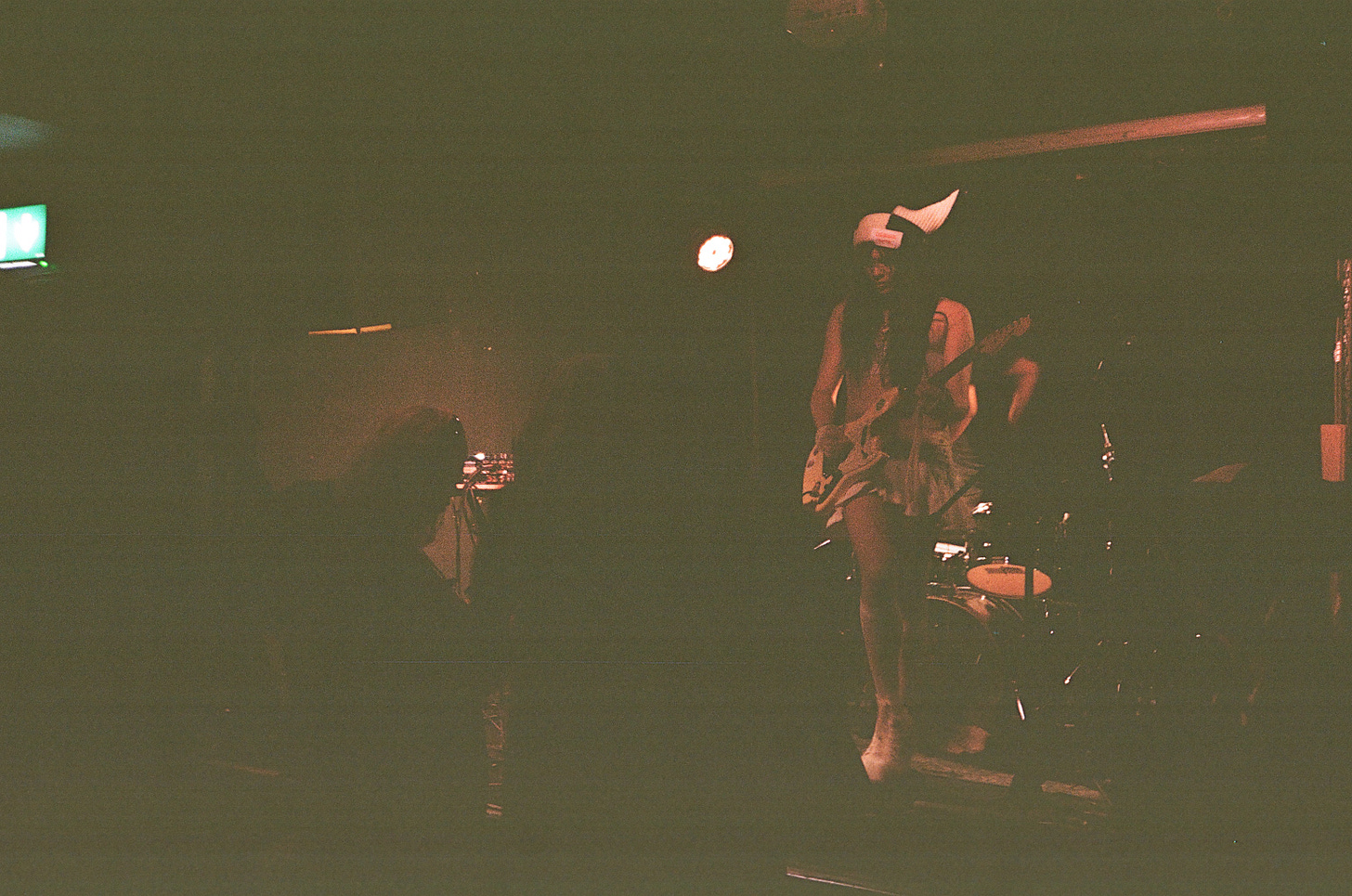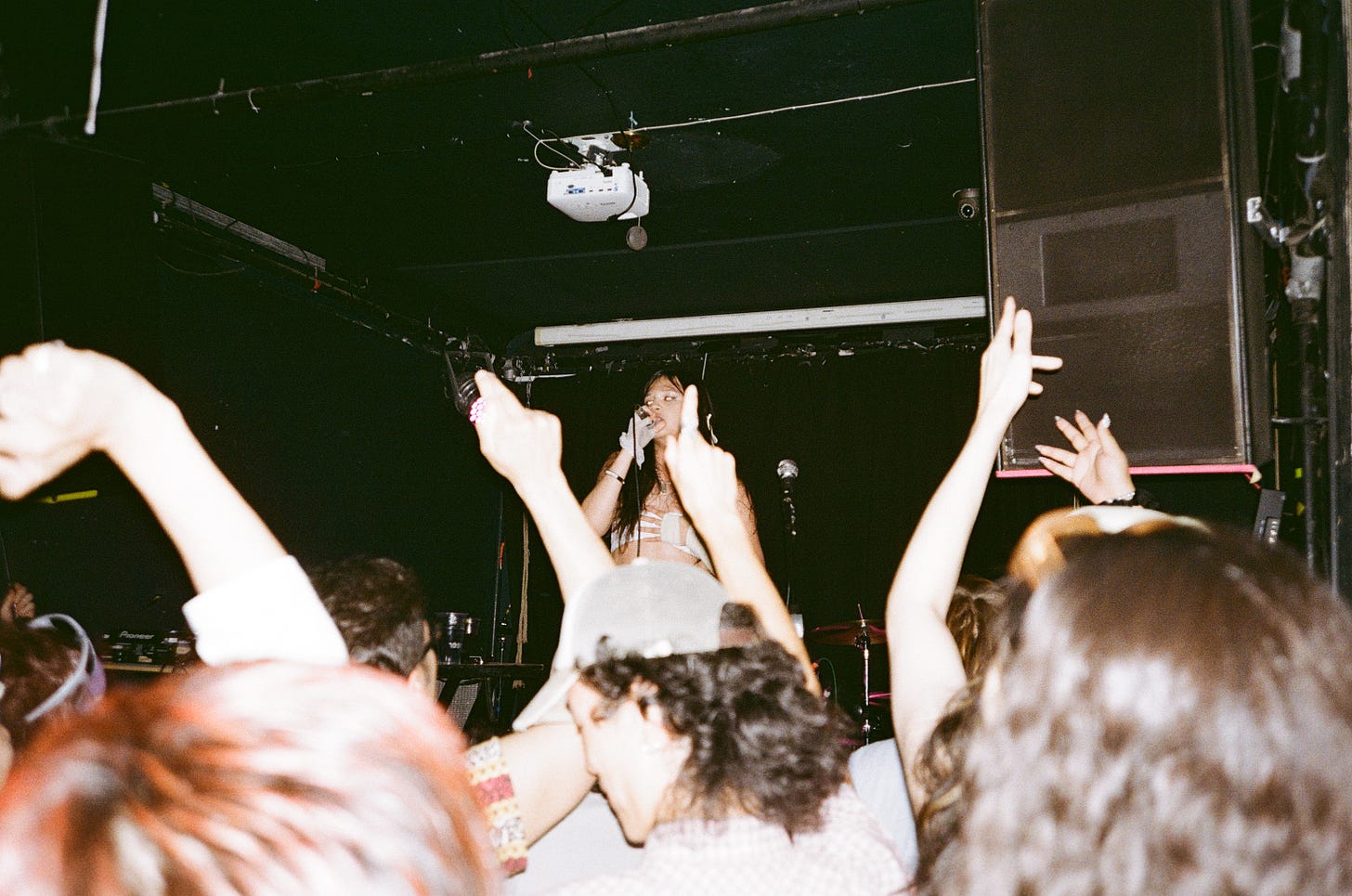Princess Xixi is doing this with or without you
Content warning: transphobic language, but like in a fun ‘reclaiming it’ way
“Wasian tranny, wasian tranny.”
The crowd shout back:
“Six-inch cock, organic strappy!”
It’s the middle of the week, and the weather outside is perfect. That hasn’t stopped 200 people from RSVPing a 150-capacity venue to see Princess Xixi headline. A couple of talent agents are also rumoured to have made it down.
Xixi is unphased. Soon after getting onstage, she applies lip gloss with a pout that has fans taking pictures before she’s even started rapping. Eventually, a beat thumps its way over the speakers, and her body convulses in time as if being possessed. The strobe lights give it their all, and soon her long black hair is draped over her eyes like the spirit from Ring.
“I’m very much the opposite of what you’d consider a standard rapper to be,” she tells me when we meet the week prior.
Of course, every artist says that, but Xixi may be one of the few who isn’t lying. By her own estimation the only transgender grime rapper in London, anyone who tries to pin down her sound comes away with whiplash. It’s as vicious as it is vulnerable, both deadly serious and laugh-out-loud funny. On her debut EP, threats to “Make a date rapist beg for forgiveness” sit one track away from the lyric “All you girls do is poo poo but I am a bitch that shits”. A Doll’s House, released in June, proceeds to blend meditation on self-loathing and transphobia with immaculately crafted dick jokes. “Watch me fold this prick like my tuck” is a line that has to be heard to be believed.
It was in 2021 that a TikTok of her freestyling went just viral enough for Xixi to consider a career in rap. A year later, she dropped what went on to become her best-known song, drill track “Leng Loi”. Xixi’s work plays up the genre’s performativity, revelling in “being able to embody that masculinity without compromising [on] being a woman in those spaces.”
“I used to really voice train a lot and not speak below [a certain] register, but in ‘anubis’, I was like ‘fuck it, I’m just gonna use the roadman voice’,” she says.
The track, which eviscerates an unnamed “racist nitty cunt”, finishes with Xixi apologising for getting “a little heated” in her normal, more feminine voice.
“It’s a kind of self-aware thing,” she explains. “[I’m acknowledging that] the lyrics are quite funny, but I’m also taking it very seriously.”
More singles followed “Leng Loi”, until A Doll’s House was released, after two years of work. A version of the EP was ready to go by the start of 2023, but something felt off.
“There was part of me that was like ‘oh, should I just make 10 more drill songs like ‘Leng Loi’, because that’s what people wanna hear from me?’” Princess Xixi tells me.
Eventually, she decided to branch out. Songs were added in and removed until four or five tracks became ten. Very few of the songs that were on the first version of the album made it onto the finished product.
“I’m glad I took the time with it,” she tells me. “I wanna try different things.”
“If there’s a segment where we need to do a couple bars in this kind of style and then maybe eight bars down the line, it completely switches genre, we’re more than happy to do that,” MisterrCha, a rapper, producer and frequent collaborator of Xixi’s, tells me.
Xixi’s output draws from grime, jungle, dancehall, footwork, Afrobeats, Afroswing and experimental electronic, MisterrCha explains. Xixi also mentions two-step, garage and footstep.
“When you go back and look at the lineage of where she’s pulling from, you can see that she’s weaved in all these threads in a really unique way,” MisterrCha says. “She’s very intentional with what she likes to create, sonically and lyrically.”
Princess Xixi refers to her melting pot of different sounds as ‘dollstep’.
As well as a slang term for trans women, dolls “are toys,” Xixi explains. “There’s an element of playfulness in my music.”
Growing up, Xixi rarely listened to music until secondary school, where she discovered grunge, emo and metal. She only found grime through friends around the age of 13 or 14. Up until that point, writing was her main creative outlet.
“I was always a massive nerd,” she says.
After finally getting into rap, she became obsessed with the history of the genre. Combining this knowledge with a love of film and literature results in music that is cerebral, but not pretentious. If you spot the nod to 1920s surrealist cinema in “anubis”, great. If not, just wait for the next punchline. Xixi isn’t the type to use big words to look clever.
“I do try and not scare the hoes too much,” she explains with a smile.
Equally, though, Xixi has never struggled to speak her mind, according to an events promoter who works under the pseudonym Czech Hunter Schafer. CHS, as we’ll call her, also runs a peerless meme account offering dispatches from the trans nightlife scene. I found out about Xixi after one of her stories was posted to the page.
“It’s a lot easier to say what you feel and to just do you and not care about what other people think when you’ve already taken the massive step of being a transsexual on terf island,” CHS tells me. “[Princess Xixi’s] music says that.”
“There’s something very healing about hearing someone like me spitting the music that I grew up on, but also isn’t a very welcoming place for us,” she adds.
“A lot of the rap scene just doesn’t fuck with me,” Xixi tells me. “Even before they’ve heard my music they’ll just be like ‘no, absolutely not’, and that’s whatever.”
“In a way, it’s quite liberating,” she says. “I feel less beholden to the rules.”
Exclusion can make shrewd observers of outsiders, who see first-hand how those rules are used to keep them out the tent. When it comes to rap, Xixi has been taking notes.
“Grime is so camp!” she laughs. “The incredible level of self-seriousness and machismo and toxic masculinity is part of the reason I find it so camp.”
None of that turns her off. There can be a playfulness in that performativity, she argues, which is precisely what she finds captivating.
“Before I transitioned, I found any extreme expression of gender very interesting,” Xixi says. “Maybe that’s one of the reasons I find grime so interesting.”
Princess Xixi has found refuge and support in London’s queer and trans nightlife scene, of which she is fiercely protective. She ends her show with a rallying cry against ‘transplants’ gentrifying the city. It’s artists like Xixi who galvanise the outgroup into counterculture. Her sound should be hard to categorise, perhaps aggressively so.
However, in one final lesson in contrast, Xixi is also a complete sweetheart. She hugs me when we meet during the soundcheck and says, without hesitation:
“You look amazing.”
I try and hide how happy a throwaway comment makes me. It’s my first time wearing a skirt and makeup out the house, though I opt not to tell her. An eager crowd is waiting for doors: tonight, the pioneer of dollstep has enough on her mind.
Images: City Rat








